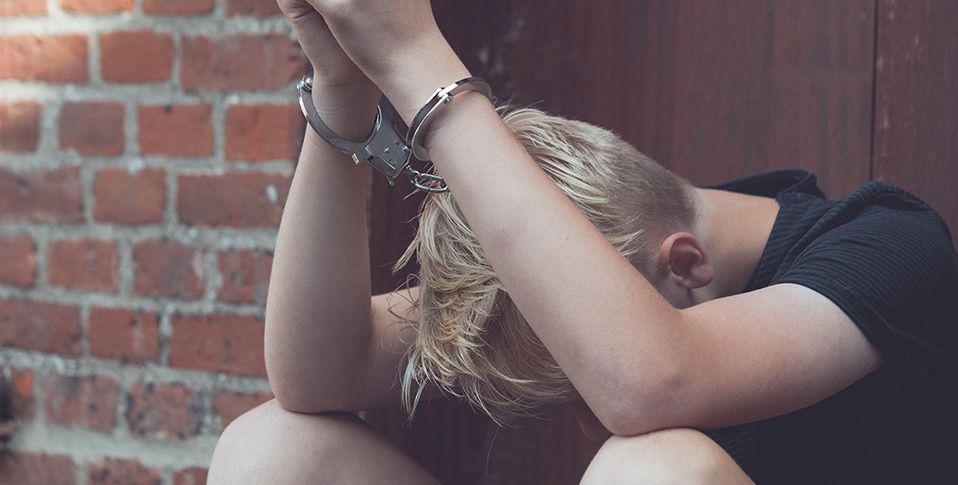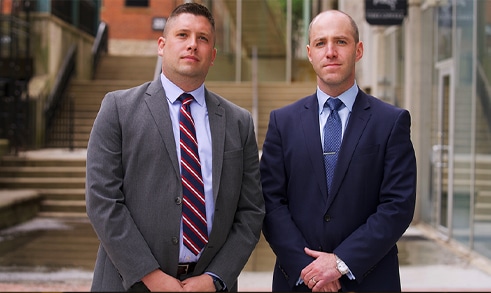
Columbus Juvenile Defense Lawyers
Caring representation for minors charged with criminal offenses in Ohio
Ohio does understand that teenagers and younger children are still maturing and learning. That is why Ohio has a juvenile justice system. In Columbus, the juvenile justice system has a dual purpose. The first purpose is to ensure that children who commit criminal offenses are apprehended, and that a determination is made as to the juvenile’s participation in any offense. The second purpose is to develop a plan that will help ensure the misconduct doesn’t happen again while also addressing any educational, emotional, or other difficulties the child is experiencing.
At Soroka & Associates, LLC, our Columbus juvenile defense lawyers advocate for children who have been charged with a criminal offense. We work to defend juveniles from offenses if they did not participate in the offense. Our defense lawyers are also skilled at developing plans, with the input of the prosecution and the juvenile judges, to help protect a juvenile’s future by focusing on the causes of any criminal conduct. We seek to keep juveniles with families instead of incarcerating them in juvenile facilities.
How can we help?
- What are the goals of the juvenile justice system in Columbus?
- What does Ohio consider a “juvenile” offender?
- What types of juvenile offenses do you handle?
- What defenses do you assert on behalf of juveniles?
- What are the penalties for juvenile offenses in Columbus?
- How are juvenile records handled in Columbus?
- Do you have a juvenile defense lawyer near me?

What are the goals of the juvenile justice system in Columbus?
Juveniles, like adults, are entitled to legal representation – provided they (or someone on their behalf such as a parent) make payment arrangements with an experienced Columbus juvenile defense lawyer.
The juvenile justice rules provide that the juvenile justice laws should be “liberally interpreted and construed so as to effectuate the following purposes:
(A) To provide for the care, protection, and mental and physical development of children subject to [other statutes] whenever possible, in a family environment, separating the child from the child's parents only when necessary for the child's welfare or in the interests of public safety.
(B) To provide judicial procedures through [other statutes] … in which the parties are assured of a fair hearing, and their constitutional and other legal rights are recognized and enforced.”
The majority of cases presented through the Court’s Juvenile Division include those of delinquency, unruly cases, and cases involving abuse, neglect, or dependency of a minor. Parentage actions and cases relating to custody, visitation, and child support are also filed through this division. Because these cases involve minors, only those who have authorized permission to these cases may access these filings.
Juvenile Division also handles traffic tickets issued for moving and non-moving violations involving minors.
What does Ohio consider a “juvenile” offender?
In Ohio, a child is defined as:
A person who is under eighteen years of age, except that the juvenile court has jurisdiction over any person who is adjudicated an unruly child prior to attaining eighteen years of age until the person attains twenty-one years of age, and, for purposes of that jurisdiction related to that adjudication, a person who is so adjudicated an unruly child shall be deemed a "child" until the person attains twenty-one years of age.
An unruly child is defined as any of the following:
- Any child who does not submit to the reasonable control of the child's parents, teachers, guardian, or custodian, by reason of being wayward or habitually disobedient.
- Any child who is an habitual truant from school.
- Any child who behaves in a manner as to injure or endanger the child's own health or morals or the health or morals of others.
There are separate definitions for abuse, neglect, and dependency.
What types of juvenile offenses do you handle?
At Soroka & Associates, our Columbus juvenile defense lawyers represent juveniles charged with any type of offense. Some of the common types of juvenile offenses we handle include:
- Murder
- Burglary
- Robbery
- Theft
- Shoplifting
- Possession of marijuana and other drugs
- Sexual assault or rape
- Operative a vehicle while intoxicated (OVI)
- Assault
- Vandalism
- Violating curfew
- Truancy
- Other offenses
What defenses do you assert on behalf of juveniles?
The defenses our Columbus lawyers assert depend on the offense and what happened. Many offenses involve other juveniles. Some children make an occasional bad decision. Other children have a history of bad decisions which requires a need to examine the root causes of those bad decisions.
Some of the defenses we may assert include:
- False allegations. Many offenses involve one child or the parent of one child blaming your child. We work to show an allegation may be false.
- An involuntary confession. Generally, the right not to incriminate oneself does apply to juveniles in Ohio.
- An improper seizure. The police and government need proper grounds to conduct a search of a person or their property.
- Value of theft. In theft cases, we argue that the items taken were worth less than those charged.
- No factual claim. We argue all the facts that support the juvenile’s claim. For example, we may argue that a store cannot charge a juvenile with shoplifting until the juvenile leaves the store or passes through a checkout line.
What are the penalties for juvenile offenses in Columbus?
The aim of the juvenile justice system is to help the juvenile reform where possible. Another aim is to help the child stay with his/her family. In juvenile cases, the judge, defense lawyer, and prosecution all work together to try to craft the best plan – if a juvenile is determined to be unruly or delinquent.
Some of the common resolutions of juvenile offenses are:
- Fines
- Probation
- Mandatory counseling such as mandatory attendance at substance abuse programs or anger management programs
- Loss of license
- Home arrest
- Placement in a detention center
Ohio does encourage community-based diversion programs that emphasize education and treatment instead of home arrest or placement.
If a juvenile is tried as an adult, then the penalties are the same as they would be for an adult.
How are juvenile records handled in Columbus?
Generally, juvenile offenses and any related records are private. Colleges, employers, and even the Ohio criminal courts generally cannot use any juvenile disposition against a juvenile provided the juvenile’s case is not transferred to an adult court. Exceptions may apply for profoundly serious crimes such as murder and rape. When a juvenile reaches 18, he/she can request that his/her record be sealed.
Do you have a juvenile defense lawyer near me?
At Soroka & Associates, we meet juveniles and families at our Columbus office located at 503 South Front Street, Suite 205. We’re near to I-71 and Rt. 23. We do speak with juveniles and parents away from the office when necessary
Get help today. Call our experienced Columbus juvenile defense lawyers now.
We understand how worried you are when your child is charged with an offense. You want to protect your child while ensuring that if there are problems, they are handled professionally. At Soroka & Associates, we understand the unique issues involved in juvenile cases. In addition to asserting a juvenile’s rights, we understand the various treatment and diversion programs that can help. Call us at 614-918-4078 or complete our contact form to schedule a free consultation.
